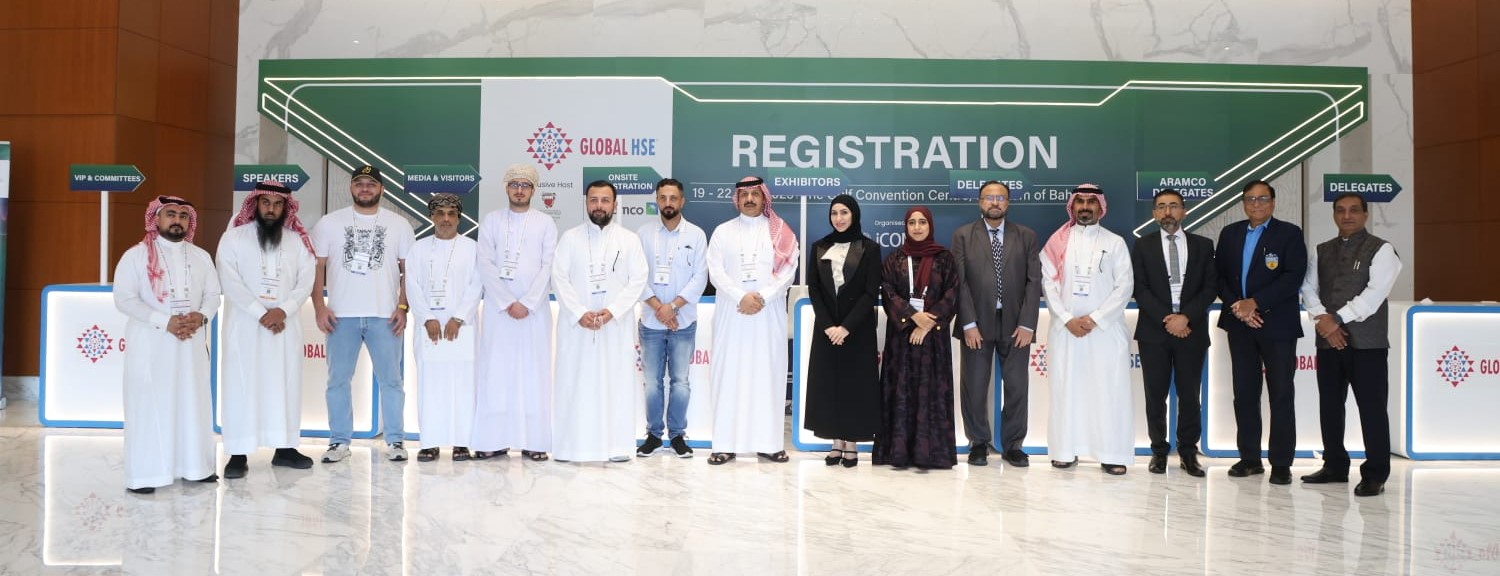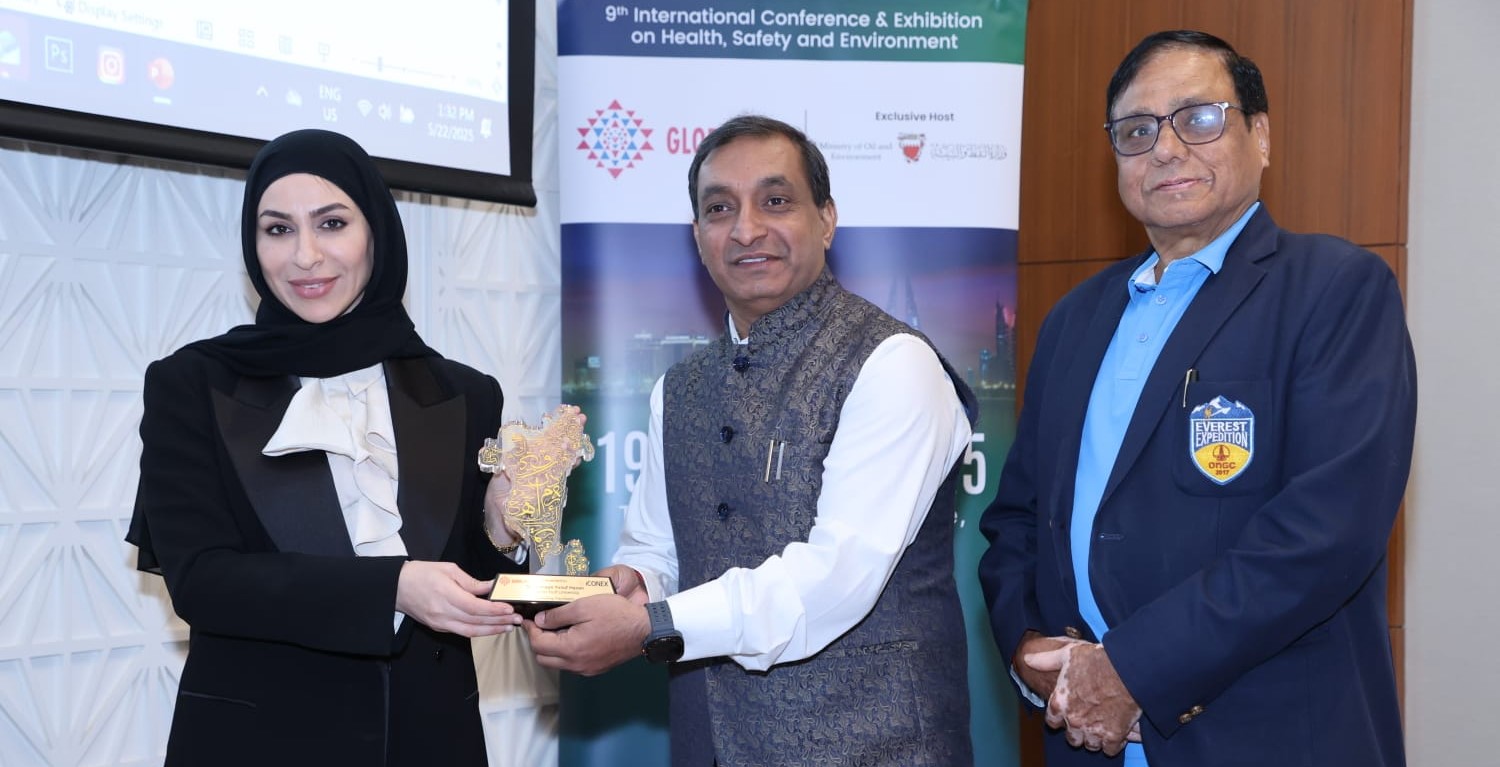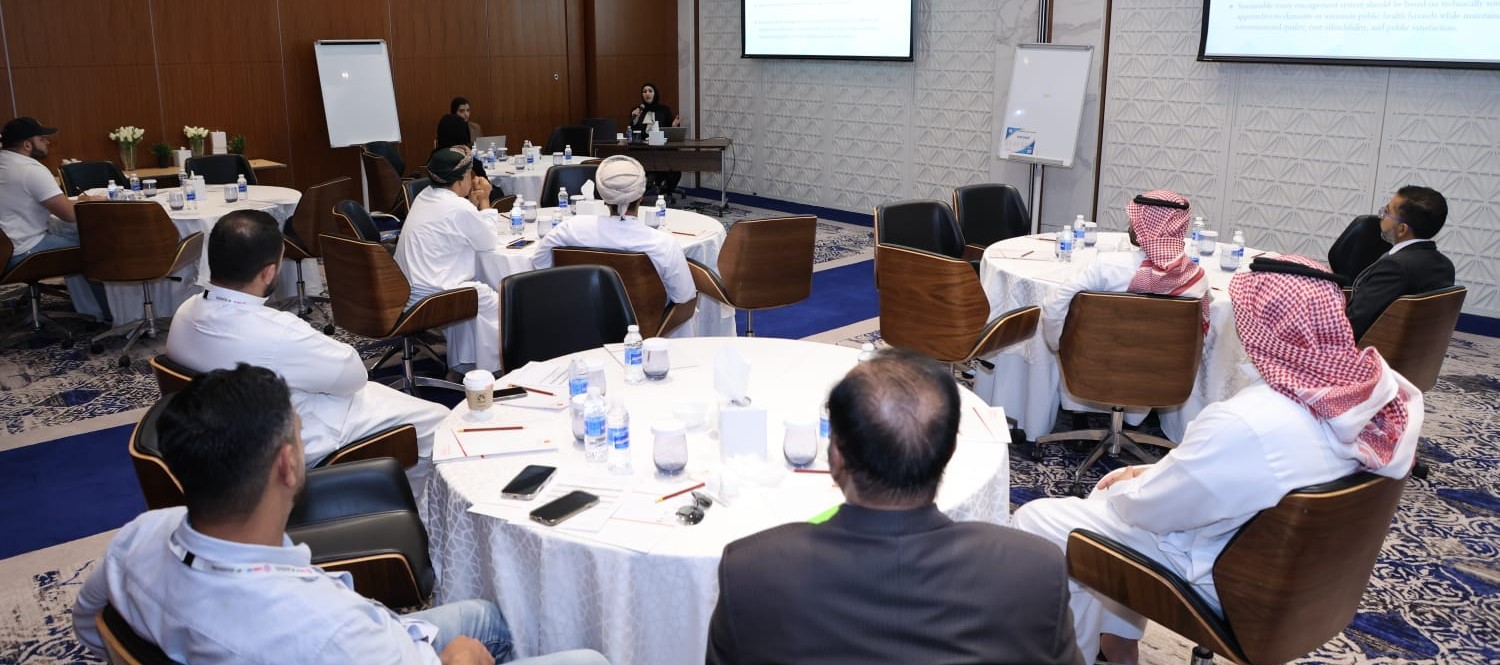
Assistant Professor of Environmental Engineering at AGU Conducts Workshop on Waste Management and Pollution Control
Arabian Gulf University
27 May, 2025
Dr Sumaya Yusuf, Assistant Professor of Environmental Engineering at the College of Education, Administrative and Technical Sciences at Arabian Gulf University (AGU), led a workshop titled “Waste Management and Pollution Control: Best Practices for Industrial Sites". This was the fifth training workshop at the 9th Global Health, Safety and Environment Conference and Exhibition (Global HSE 2025), recently inaugurated by His Excellency Dr Mohamed bin Mubarak bin Daina, Minister of Oil and Environment and Special Envoy for Climate Affairs.

The workshop covered a wide range of topics, including the principles of sustainable waste management, integrated waste management approaches, and their roles in resource conservation, community sustainability, and pollution reduction. Attendees discussed various aspects of industrial and hazardous waste management, such as waste characteristics, classifications, best practices, and suitable technologies for each category.
Participants also received insights into risk and disaster assessment and management processes, emergency response planning, and implementation mechanisms. The session highlighted the Sustainable Solid Waste Management (ISWM) approach and the waste hierarchy, equipping attendees with skills to identify and characterise hazardous industrial waste. Participants explored technologies used in waste management, including biological, nature-based solutions like anaerobic fermentation, bioremediation, and phytoremediation, as well as thermal technologies such as energy recovery from combustion, gasification, and pyrolysis.
The workshop emphasised criteria for selecting appropriate technologies and optimal operational conditions. Dr Yusuf provided a comprehensive overview of safety procedures throughout the waste management chain, from waste generation and collection to transportation, storage, treatment, and disposal. The session also covered hazard warning labels, approved symbols, and relevant international conventions, illustrated through real-life case studies.

Interactive discussion sessions facilitated the exchange of experiences among participants from various sectors, including oil and gas, petrochemicals, plastics, medical, academic research, and industrial sectors. Representatives from major companies such as Aramco, BAPCO, SABIC, GPIC, and others participated in the event.
